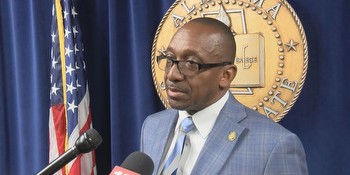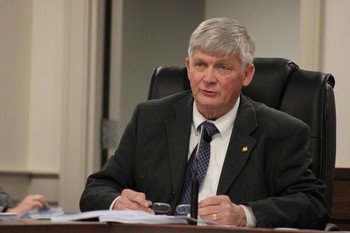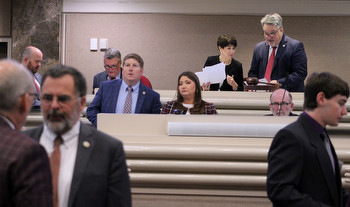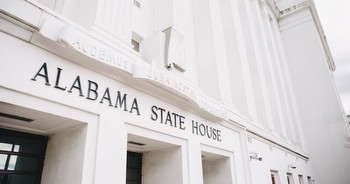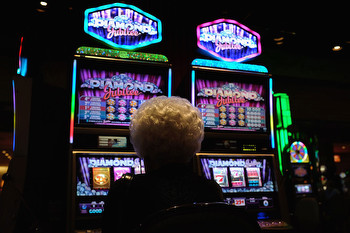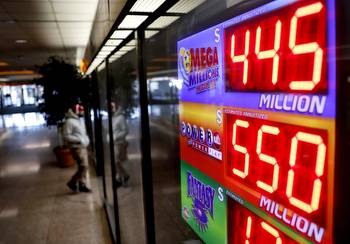Gambling legislation stumbles in Alabama Senate, lawmakers delay vote

MONTGOMERY, Ala. (AP) — The Alabama House of Representatives advanced a compromise on gambling legislation to authorize a state lottery and allow slot machines at seven locations in the state, but the measure stalled late Tuesday amid opposition in the Alabama Senate.
Senators delayed a decision on the proposal after an initial vote showed it was one short of the required 21 needed to win approval. The move keeps the bill alive for senators to try again in the final four days of the 2024 legislative session.
“We had a vote that ended up being a test vote. The bills are carried over, so the legislation is still available to us to continue to debate it,” Senate President Pro Tempore Greg Reed told reporters.
A conference committee — appointed to negotiate differences between House and Senate versions of the bill — on Tuesday proposed a compromise that would authorize a state lottery and allow “electronic games of chance” including slot machines and video poker, but not table games, at seven locations. The seven locations would be the dog tracks in Macon, Jefferson, Greene and Mobile counties, plus existing bingo halls in Lowndes, Houston and Greene counties. The conference committee proposal would also direct the governor to negotiate a compact with the Poarch Band of Creek Indians.
If approved by three-fifths of lawmakers, the proposal will go to a statewide vote on Aug. 20.
Supporters are aiming for the first public vote on gambling in 25 years. Voters in 1999 rejected a lottery proposed by then-Gov. Don Siegelman.
The Alabama House of Representatives voted 72-29 for the conference committee proposal, exceeding the 63 votes required to win approval in the 105-member chamber. House Speaker Nathaniel Ledbetter said in a statement that he was proud of conference committee members for reaching a compromise and urged the Alabama Senate to pass the bill.
“Most importantly, it allows the people of Alabama to vote on this issue for the first time in 25 years,” Ledbetter said in a statement.
However, the measure stalled in the Alabama Senate, where it needs 21 votes. Senators voted 20-15 for a motion to concur in the conference committee, and Lt. Gov. Will Ainsworth announced that the conference committee failed. Senators then voted to carry over the bill for the evening.
Senate Secretary Pat Harris said the initial vote was to adopt the conference committee report. Harris said because it was short of the needed 21, a second vote was required, and lawmakers delayed taking that vote.
“If you adopt the conference committee report with less than 21 votes, then you have to repass the bill. We had 20,” Harris said.
Harris said he had seen the situation one other time in his decades working with the Alabama Legislature
The move keeps the bill alive for supporters to try to muster an additional vote.
Several legislators said their constituents often drive across state lines to play the lotteries in neighboring states and want to have a lottery at home.
“They want to be able to vote for it. They want to not have to go across state lines,” Democratic Rep. Laura Hall said during debate.
Republican Rep. Rep. Arnold Mooney, who voted against the proposal, said it does much more than authorize a lottery because slot machines would be allowed at multiple locations.
“I feel like the bill basically allows full-scale Las Vegas-style casino gambling statewide. You know obviously no physical cards, dice, roulette wheels or dealers. But if it is on a screen, you can play it,” said Mooney, a Republican from Indian Springs.
The gambling legislation had been stalled since March, when senators scaled back a sweeping House-passed plan that would have allowed a lottery, sports betting and up to 10 casinos with table games.
The proposal under debate Tuesday was largely negotiated in private. The conference committee approved the bill with little discussion. Copies of the bills were not available in the online legislative system until after the House vote.








